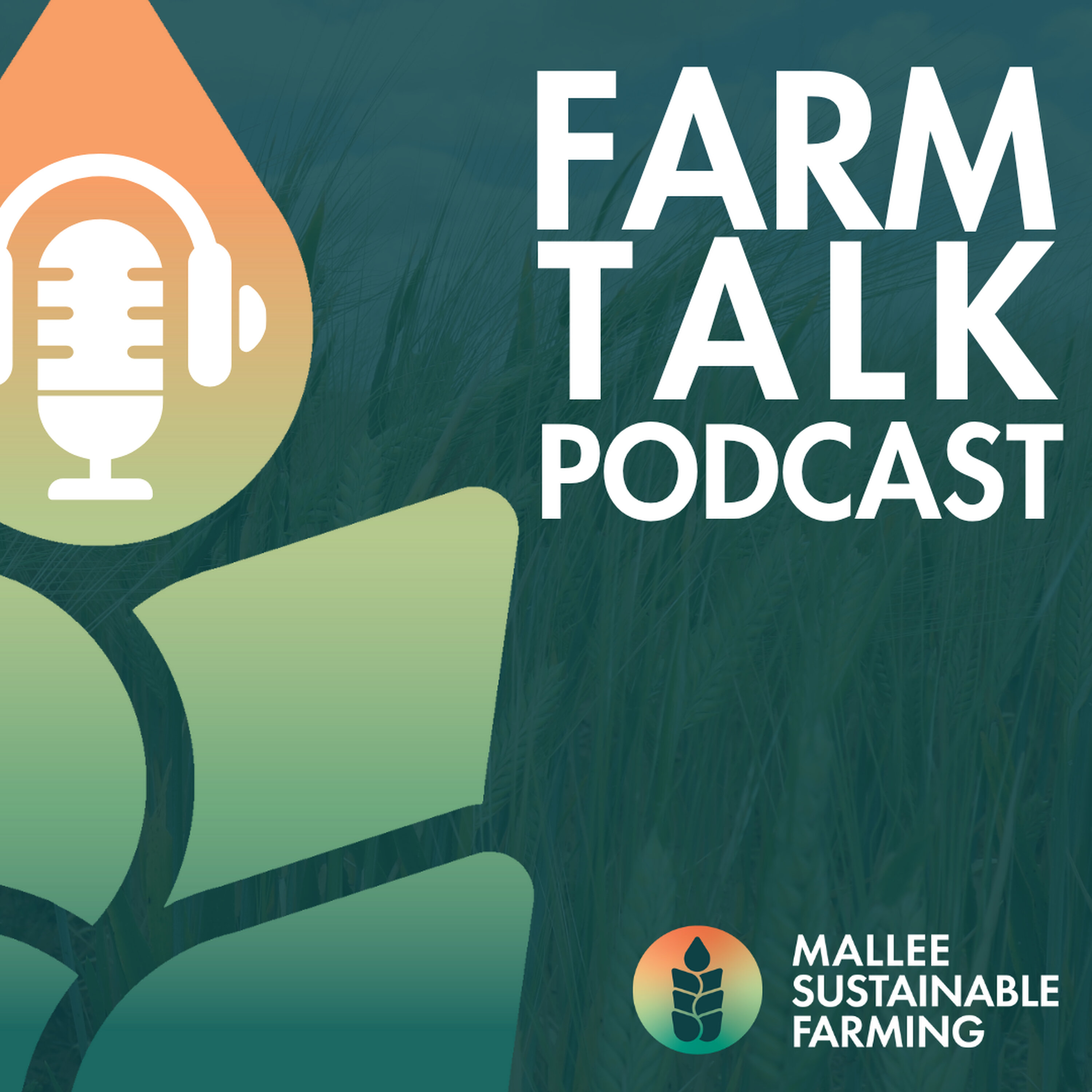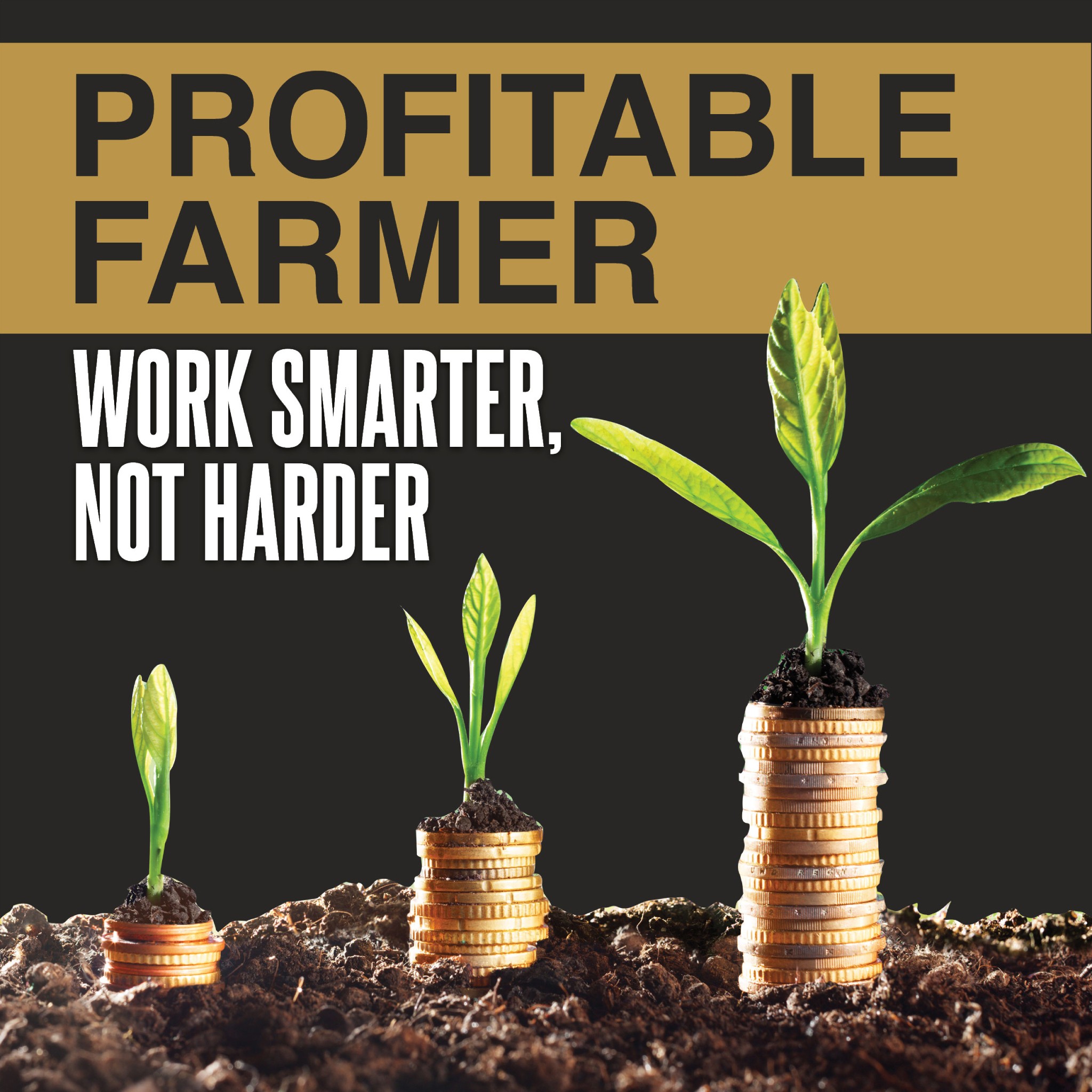
Riverine Plains
'Farmers inspiring farmers'
On the Riverine Plains podcast we cover the topics relevant to Australian farmers - and particularly those on the Riverine Plains.
You can check out more of our project at riverineplains.org.au
Riverine Plains
Plain Talking: First Aid on Farm
Join Nick Ennis from Lawson Grains and Scott Brown, from Rural and Remote First aid discuss the importance of on farm safety.
It's really important. When we onboard a new person into the business, we do what's called a site-specific induction, so we show them where all the first aid kits are fire extinguishers, no-go zones, area of concerns and areas to watch out for, how to report incidents, what incident could be a near miss or something that needs to be notified. But all of every single vehicle has got a first aid kit in it. The Hilux, for example, will just have a fairly basic first aid kit, as will a tractor or a combine harvester or a sprayer, but then we've got more comprehensive first aid kits in the workshop and also in the office as well. Everyone on site is a trained first aider, and we require everyone that starts with us as a new employee to undergo first aid training as well.
Camilla Plunkett - Riverine Plains:Hello, I'm Camilla Plunkett and that was Nick Ennis from Lawson Grains, highlighting the importance of a safe workplace. It's National Farmer Safety Week and a timely reminder from all of us at Riverine Plains to take a moment and think safety first, safety first. Having had first-hand experience with an on-farm accident, Nick is especially passionate about farm safety and changing the on-farm culture around doing things, and doing things on the safe side. Nick, can you give us an insight into your personal experience with what must have been a horrible situation, and how did the first aid training that you'd received come into play?
Nick Ennis - Lawson Grains:Yeah, I had a significant incident on farm in 2017 where two men were nearly killed, with a fertiliser spreader falling backwards, crushed a man under the spreader and another fellow was badly injured as well. What it proved to me during that particular incident was the response from the other guys around the area was absolutely fantastic in terms of communication, making that call to triple zero, making sure the people that were injured were, firstly, comfortable, but then administering first aid. I was amongst those those guys and I was the manager, so I was in charge of everything and running the whole process. I was immensely proud of the other guys that were involved in that particular incident. Obviously, it was a it was a very, very bad incident, and one guy in particular will never be the same again, but I was really happy with the way the whole scenario played out.
Nick Ennis - Lawson Grains:We could obviously do a lot of things better. We constantly learned from our mistakes. One of the things that we could have done better was incident reporting and near-miss reporting as well. So we actually found out that we had a very similar incident in our business only six months before. No one was injured, but exactly the same thing happened to that same piece of gear on another one of our farms and it wasn't reported. On another one of our farms and it wasn't reported. If it had been reported and we knew about that particular fault and how it's occurred, we wouldn't have done what we did.
Nick Ennis - Lawson Grains:So there's another reason why it's really important. If you see something that happens and you think, oh shit, that was close. Oh my God, that could really have been damaging or hurt someone, put your hand up and say this is no good. Secondly, we need to let other people know that this has happened so it can't happen again. We need to learn from that.
Nick Ennis - Lawson Grains:I think it's really important, and something that I've learned over the last couple of years is having a change in mindset around safety, and for me, I think the catalyst was thinking about safety for the long term and making sure people get home to things that really mean a lot to them. But most importantly it's a bit of a catchphrase, but it's something that resonates with me a lot is that safety is not about protecting you from something. Safety is about protecting you for something, so for that thing that you want to go home to at the end of the day. Just that little catchphrase has completely changed the way I think, and it's really, really important, I think, to then for me to go to other people in our business and across agriculture in general to have that change of mindset and really think about what you're doing, because shit does happen, it does happen. We need to make sure that it doesn't happen again.
Camilla Plunkett - Riverine Plains:It sounds like you had a great team there that day, and lucky they were all.
Nick Ennis - Lawson Grains:It's interesting like, the further you get out away from an ambulance station or a doctor or a medical facility, whatever the case may be, could be half an hour, could be an hour or more If you've got first aid training, you've got the ability to know what's needed to be done to keep a person safe, to make sure that they're comfortable and obviously clearly administer first aid. It's really important that you have that training and then you can act calmly. It's really important that you have that training and then you can act calmly. You default back to what you've learnt during those training sessions and then you can help save someone's life.
Camilla Plunkett - Riverine Plains:For over 21 years, Scott Brown has been an ambulance officer for Ambulance Victoria and is also the owner of Rural and Remote First Aid. Scott is passionate about delivering first aid courses specifically tailored to assist farmers and those in remote areas.
Scott Brown - Rural and Remote First Aid:My name's Scott. I'm the owner and senior instructor at Rural and Remote First Aid. Our organisation has a vision and a goal that all rural Australians will have the confidence and skills to act in an emergency situation. We do that by partnering with people who live in rural and remote areas so that if an emergency happens then they're going to get the best outcome for their people in their organisation for their people and their organisation.
Scott Brown - Rural and Remote First Aid:I live in West Gippsland in Victoria, about halfway up in the mountains to Mount Baw Baw, and I joined the ambulance there in 2001. And the main reason I joined the ambulance is because a family member was involved in a pretty ordinary paddock incident and at the time back then the Ambo's were the local farmers and they were all older guys and one of them pulled me aside and said we need young bodies if these people are going to get good outcomes. So yeah, I joined the ambulance back then. It was quite a different beast back then, but it certainly showed me that we need we need good first aid because most of the areas that we respond to are really steep. It's a lot of dairy country, dairy farm country, country where we are, but we can't rarely can we get the ambulance to where the patient is. So we rely a lot on, I guess, the first aid skills of the people that are first on scene to get the best outcome for the person who suffered the illness or the injury.
Camilla Plunkett - Riverine Plains:Scott, what's the first thing we need to know with first aid?
Scott Brown - Rural and Remote First Aid:We as human beings, when something pretty ordinary unfolds in front of us, we get hyper-focused and the cold hard reality is that the front of our brain that thinks about solutions and creative thinking and safety and risk and stuff unfortunately shuts down if we don't re-engage it. So the first thing I want you to do is slow down, take a breath, don't just rush in. Is everybody safe? That's the question I want you to do is slow down, take a breath, don't just rush in. Is everybody safe? That's the question I want you to ask yourself. Am I safe before I proceed in? Are the other people around me safe, and is the person who's injured or ill as safe as they can be, considering they're injured or ill? So please, please, please, take the time to make sure everyone's safe. Otherwise we're going to end up with more patients or the patient's going to get a worse outcome. So slow down, slow down, take a breath.
Camilla Plunkett - Riverine Plains:So self-preservation, making sure yourself and everyone else is safe, and thinking as clear as possible so you can administer that care.
Scott Brown - Rural and Remote First Aid:There's a lot of science and data out of the US that says if someone suffers from a reasonably impactful injury or illness, then their outcome is determined by the care that they get in the first hour. And most of the time on farms we're not going to get medical aid, ambulances or the chopper or whatever it is. We're not going to get that inside that hour. So it's down to us to make those decisions to get the best outcome. So that's why it's a legal responsibility. But for me it's more about let's look after the people that are closest to us and the people that are working to keep our farm going.
Camilla Plunkett - Riverine Plains:Absolutely, and the old saying goes prevention is better than cure.
Scott Brown - Rural and Remote First Aid:I guess where we come into it is after the problems happened, and we would much rather not have to be involved in that, and we know that incidents or accidents are going to happen and that's when we want to step in. But you know, if we can. Uh, you know, it sounds easy for me to say from here but slow down, nothing's so important that it has to get done today that we cut corners. So stick to your processes. Um, keep doing your basic checks. So if you've got a um, you know like a pre-start check that you run on your machinery, then don't skip it today because you're under the pump or things like that. Just do the basics, do them well and document them as well, so that becomes a habit.
Camilla Plunkett - Riverine Plains:Can we talk about the importance of a first aid kit and what advice you could give on selecting the appropriate one for the appropriate environment?
Scott Brown - Rural and Remote First Aid:The most common thing, we've used it over a period of time, taken lots and lots of little things out and then the one big thing happens and you've got a bare, empty first aid kit. It needs to be a process that you have. Accessibility is everything. But we've also got to understand too that this type of first aid kit that you choose needs to be appropriate.
Scott Brown - Rural and Remote First Aid:Um, the vast majority, from my personal experience, um, the vast majority of first aid kits that will say things like vehicle kit or, um, you know, remote first aid kit or stuff, are well and truly underdone. If you have a look at the sort of injuries that could happen, you know, heaven forbid. But if someone really does get themselves caught up in a PTO and stuff, the average first aid kit is overwhelmed in seconds. So we need to be thinking broader about, well, what sort of things could happen and what sort of additions do we need to make to that. But also, part of your process needs to be to regularly check those, those kits.
Scott Brown - Rural and Remote First Aid:I would say probably every six months, and, and the best thing to do, I think, is probably have like a bigger backup kit that's back at the house, um, that you can deploy in the serious events. So you've got like the you know the cavalry version, so to speak. That's going to arrive shortly, but you can also use that one to top up your field kits or your car kits immediately when something's gone wrong, so that you never got that gap where you go oh yeah, I'll order that next week, no, it's already there and then you top up the kit back at homestead or back at your house or whatever. So, yeah, there's always something there ready to go.
Camilla Plunkett - Riverine Plains:So a timely reminder, with National Safety Week, to check those first aid kits and to restock them if you need to.
Scott Brown - Rural and Remote First Aid:At the end of the day, it's also the one set of training that we hope you'll never have to use. If we get everything right, you'll never have to use first aid. But it's a little bit like insurance you buy it in the hope that you never have to use it. And from a personal perspective from a few years ago, I can also say that if something does happen and you feel underskilled or under-equipped, it's pretty soul-destroying. So you want to make sure that you've at least got something that you can contribute to a better outcome for your family member or your work colleague.
Camilla Plunkett - Riverine Plains:That was Scott Brown from Rural and Remote First Aid, and earlier Nick Ennis with a very personal account of why workplace safety is so important. If you would like more information about our upcoming Rural and Remote First Aid courses with Scott, visit the Riverine Plains website at www. riverineplains. org. au. This is a Riverine Plains podcast and we believe in farmers inspiring farmers. I'm Camilla Plunkett. Thanks for joining us and stay safe out there!
Podcasts we love
Check out these other fine podcasts recommended by us, not an algorithm.

GRDC Podcast
Grains Research and Development Corporation
Grains Convo
Grower Group Alliance
AgVic Talk
Agriculture Victora
Farms Advice Podcast
Farms Advice
Podcasts – RealAgriculture
RealAgriculture
Soils For Life
Soils For Life
MSF Farm Talk Podcast
Mallee Sustainable Farming
CommBank Agri Podcast
commbankagripodcast
AgriFutures On Air
AgriFutures Australia
Sustainability Further
Banish
Humans of Agriculture
Humans of Agriculture
Farmers Helping Farmers
VicNoTill
